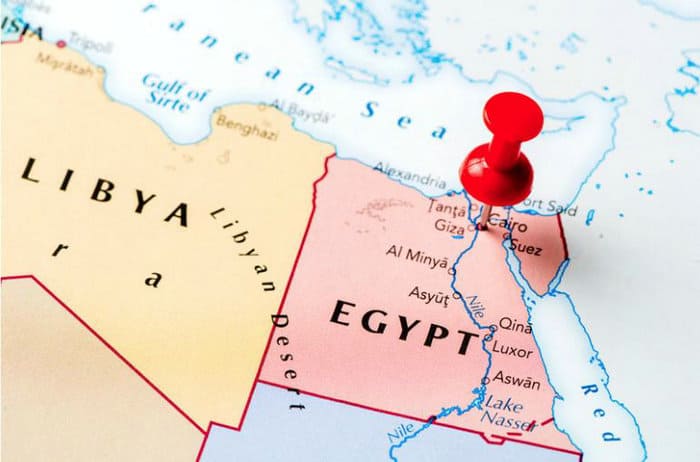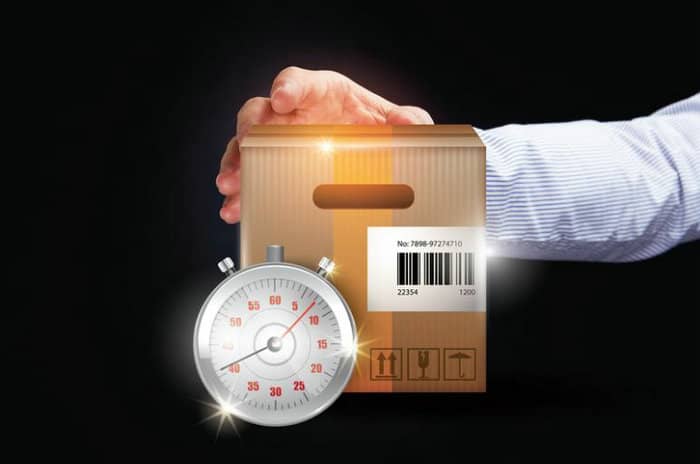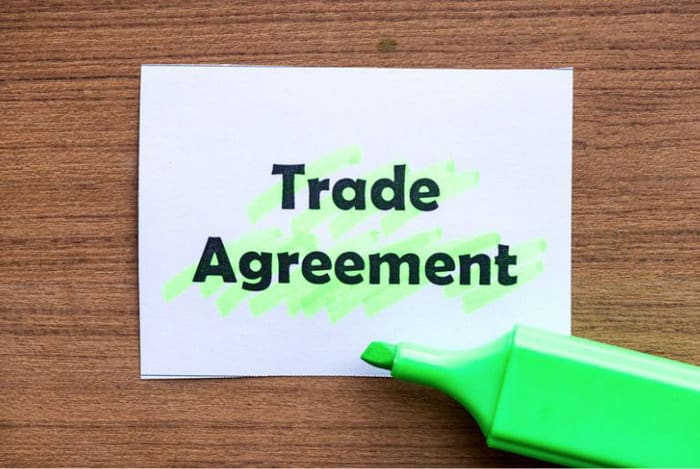
Shipping from China to Egypt has become a crucial aspect of global trade, facilitating the flow of goods between one of the world’s largest exporters and a strategic gateway to the Middle East and North Africa. With a booming e-commerce sector and the increasing need for diversifying supply chains, understanding the intricacies of this shipping route is essential for businesses and entrepreneurs looking to tap into these markets.
When you ship goods from China to Egypt, you have several options, including sea and air freight. Each mode of transportation offers its balance of cost, speed, and capacity, making it essential to consider the nature of your goods and your specific logistical needs. Sea freight is often the most economical choice for large volumes of goods, while air freight is typically faster, albeit at a higher cost.
Navigating the complexities of customs regulations, clearance procedures, and local delivery in Egypt can be a challenge, especially given the varying regulations and necessary documentation. Partnering with experienced freight forwarders and logistic service providers can simplify this process, ensuring that your shipments comply with all legal requirements and reach their destination efficiently. With the right strategy, shipping from China to Egypt can be a smooth and reliable process that supports your business growth and meets market demand.
Understanding Shipping Routes
Shipping goods from China to Egypt involves selecting the most suitable route based on your cargo’s nature, urgency, and budget. These choices mainly revolve around ocean freight and air cargo, each with its strategic considerations.
Ocean Freight
When you opt for sea shipping, your cargo will typically depart from major Chinese ports like Shanghai, Ningbo, or Shenzhen. Your goods will sail through the South China Sea, entering the Strait of Malacca, crossing the Indian Ocean, and transiting via the Red Sea through the Suez Canal before reaching the Egyptian ports, primarily the Port of Alexandria or the Port of Damietta.
There are two main types of ocean shipping:
- Full Container Load (FCL): Your goods fill a whole container.
- Less than Container Load (LCL): Your cargo shares container space with other shipments.
| Service | Transit Time | Cost Efficiency |
|---|---|---|
| FCL | Faster | More cost-effective for large volumes |
| LCL | Slower | Economical for smaller loads |
Air Cargo
For air cargo, your goods will likely fly from airports like Beijing Capital, Shanghai Pudong, or Guangzhou Baiyun. They will then transit through one or several stops before arriving at major Egyptian airports such as Cairo International. Air shipping offers:
- Speed: It’s the fastest way to move cargo internationally.
- Safety: Airfreight tends to have a lower risk of damage or theft.
While air freight is more expensive than ocean shipping, it is preferable for urgent or high-value goods.
| Factor | Air Cargo Advantage |
|---|---|
| Transit Time | Significantly shorter compared to ocean freight |
| Cargo Safety | Higher when airborne |
Major Ports and Terminals
When shipping a container from China to Egypt, you’ll heavily rely on major ports in both countries that facilitate international cargo shipping.
| Ports in China | Ports in Egypt |
| Shanghai | Alexandria |
| Shenzhen | Damietta |
| Guangzhou | Port Said |
| Tianjin | Sokhna |
| Qingdao | |
| Ningbo |
Key factors of the major ports that handle freight from China to Egypt:
- Shanghai Port: This is one of the world’s busiest container ports, handling enormous volumes of cargo. It acts as a critical hub for shipping routes to Egypt.
- Shenzhen Port: Located in the south of China, this port comprises several terminals, like Yantian and Shekou, specializing in trade with Africa and the Middle East.
- Port Said: Situated at the northern entrance of the Suez Canal, it’s a prime gateway for cargo transitioning from Asia to Egypt.
- Alexandria Port: As Egypt’s main port on the Mediterranean, it serves as a major import and export hub for goods to and from China.
Shipping Costs
Understanding freight rates from China to Egypt is critical for budgeting your import operations. These costs are influenced by a variety of factors and can be estimated using specific pricing models.
Cost Factors
Several elements affect the shipping costs from China to Egypt:
- Weight and Volume: The size and weight of your shipment will directly impact the cost. Heavier and larger shipments will naturally incur higher fees.
- Shipping Method: Costs vary depending on whether you choose air freight, sea freight, or express courier services. Each has its own price structure.
- Distance and Route: The length of the shipping route and the specific ports of entry can also affect the price.
- Type of Goods: Special goods requiring additional handling or deemed hazardous might lead to extra charges.
- Seasonality: Shipping rates may increase during peak seasons due to higher demand.
- Customs and Duties: The tariff classification of your goods will determine the customs duties required to pay upon entry into Egypt.
Estimating Prices
You can estimate freight costs using the following methods:
- Freight Calculators: Online tools provided by shipping companies can give you a rough estimate of costs based on input details.
- Quotations: Contacting freight forwarders directly will allow you to obtain detailed quotes that factor in all your specific needs and the current market rates.
Customs and Regulations
When conducting trade between China and Egypt, you need to be well-informed about the customs and regulations governing exports from China and the import procedures in Egypt. Understanding these will ensure a smoother transit and compliance with both countries’ legal requirements.
China’s Export Regulations
In China, you must comply with export regulations set by the customs authorities. Items leaving China need an export license, and it’s crucial to declare your goods accurately. Here is a brief overview of what you need to handle:
- Documentation: Prepare the necessary documents, which include but are not limited to:
- Export Invoice
- Packing List
- Customs Declaration
- Export License (for certain goods)
- Restricted Items: Some items are subject to export controls, such as:
- Arms and ammunition
- Rare animals and plants
- Certain chemicals
Ensure your goods are not on the restricted list, or if they are, you’ve taken the proper procedures to obtain permission for export.
Egypt’s Import Procedures
Upon arrival in Egypt, your shipment will undergo several import procedures. Understanding these steps will help you navigate the process smoothly.
- Documentation: Ensure you have all documents ready for customs clearance in Egypt:
- Commercial Invoice
- Bill of Lading or Airway Bill
- Certificate of Origin
- Import License (for regulated goods)
- Packing List
- Insurance policy (if applicable)
- Inspection and Duties: Be prepared for:
- Goods inspection upon arrival to verify their type and condition.
- Payment of duties and taxes as assessed by the Egyptian customs.
- Prohibited Items: Some goods are not allowed into Egypt, such as:
- Narcotics and drugs
- Hazardous materials without special permission
- Counterfeit goods
Compliance with regulations and proper documentation are the cornerstones for successfully shipping goods from China to Egypt. Ensure all your paperwork is in order and guidelines are followed to avoid delays or additional charges.
Transit Time

Understanding transit times is crucial for planning and managing your supply chain when shipping from China to Egypt.
Average Ocean Transit Durations
Ocean freight is a common mode of transport for shipping goods from China to Egypt. Your shipping duration depends on the route and service selected. Here are typical durations for standard container ship lines:
| Routes | Shipping Time |
| Shanghai to Alexandria | Approximately 22-28 days |
| Ningbo to Said (Port Said) | Roughly 20-25 days |
| Guangzhou to Damietta | About 18-24 days |
The times can fluctuate based on weather conditions, the shipping line chosen, and the specific service level.
Air Freight Transit Times
If you’re shipping by air, the transit time is considerably less than ocean freight. Key airports include Beijing Capital International Airport and Cairo International Airport. Look at the table below for estimated transit times:
| Origin Airport | Destination Airport | Estimated Transit Time |
|---|---|---|
| Beijing (PEK) | Cairo (CAI) | 10-12 hours |
| Shanghai Pudong (PVG) | Cairo (CAI) | 12-14 hours |
| Guangzhou (CAN) | Cairo (CAI) | 14-16 hours |
Please note that transit times are subject to change due to factors like customs clearance processes, flight availability, and the type of air freight service chosen (direct vs. indirect flights).
Logistics and Handling
You need to understand the intricacies of cargo handling and warehousing to ensure the safety and efficiency of your shipment during International shipping.
Cargo Handling Essentials
Regarding cargo handling, you must familiarize yourself with the specific regulations for importing goods into Egypt. The Egyptian Customs Authority mandates that all imported goods be accurately declared and accompanied by the necessary documentation, including a commercial invoice, packing list, and bill of lading.
Ensure your goods are properly packaged to withstand transit. Fragile items require extra padding and sturdy containers, while perishables need temperature-controlled environments. Incorrect packaging can lead to damage or loss, so adhering to best practices is crucial.
Packaging Guidelines:
- Fragile Items: Use bubble wrap and rigid boxes.
- Perishables: Employ refrigerated or insulated packaging.
Warehousing
Choosing the proper warehousing facilities in Egypt involves considering several factors such as location, storage requirements, and security measures. Your choice should be strategically located to minimize the distance from the port of entry to the warehouse and ultimately to the final destination.
Considerations for Warehousing:
- Proximity to Ports
- Storage Needs
- Security Measures
For specialized goods, like temperature-sensitive or hazardous materials, seek warehouses that offer the necessary accommodations to ensure the integrity of your products remains intact during storage.
Specialized Storage Requirements:
- Temperature Control Systems
- Certified Hazardous Material Handling
By attending to these details, you can help guarantee that your shipping process from China to Egypt is handled with expertise and attention to the necessary logistics.
Insurance and Safety
As an importer, securing your cargo with comprehensive insurance and implementing effective risk management practices to safeguard against potential shipping perils is crucial.
Insurance Policies
Types of Coverage: Your shipments are eligible for various insurance policies, which typically cover loss and damage. The most common types are:
- All-Risk Coverage: Provides compensation for all risks unless specifically excluded.
- Named Perils Coverage: Compensates only for the risks named in the policy.
- General Average Coverage: Protects you in case your cargo is sacrificed for the vessel’s safety.
To select appropriate insurance, assess the value of your cargo and the potential risks involved.
Risk Management
- Packaging Standards: Ensure your goods are properly packed in sturdy, compliant packaging to withstand the rigors of transportation.
- Monitoring and Tracking: Utilize GPS or RFID technologies to keep a real-time track of your shipment, enabling prompt action in the event of a discrepancy.
| Risk Factor | Mitigation Strategy |
|---|---|
| Theft | Secure packaging, sealing, and GPS tracking. |
| Damage due to weather | Use of weather-resistant materials and moisture barriers. |
| Loss at sea | Proper declaration of goods and adherence to loading protocols. |
Following these guidelines helps to minimize the risk of loss and ensures that your goods are protected throughout the shipping process from China to Egypt.
Tracking Shipments
It’s vital to have real-time access to the location and status of your cargo. Modern technology streamlines this process, providing actionable data through various tracking services.
Technology in Tracking
In the shipping industry, technological advancements have significantly improved the monitoring of freight movements. Your shipments are typically equipped with GPS devices that send signals to satellites, which then relay this information to you through an interface provided by your shipping company. Additionally, RFID tags are often used to track container-level details and relay inventory information, ensuring you know the shipment’s exact contents and status.
Tracking Services
Various tracking services are available, each offering distinct advantages for monitoring your shipments from China to Egypt. Below are some options you might encounter:
| Tracking Tool Type | Advantages |
|---|---|
| Carrier’s Website | Direct information, reliable updates |
| Third-Party | Comprehensive coverage, detailed tracking |
| Mobile Apps | On-the-go access, real-time alerts |
- Carrier’s Website: Shipping lines usually offer tracking tools on their websites where you input your bill of lading (BOL) or container number to get the latest update on your cargo.
- Third-Party Trackers: These platforms aggregate data from multiple carriers, giving you a comprehensive view of your shipments across different transporters. They frequently provide more detailed tracking information, sometimes down to the minute.
- Mobile Apps: Many tracking services offer mobile applications that enable you to track your shipment on the go. Alerts and notifications keep you informed of any changes or updates, ensuring you have constant oversight of your cargo’s journey.
These services let you stay well-informed about your shipment’s progress and manage your logistics efficiently.
Legal Considerations
You must comply with several legal requirements when shipping from China to Egypt. Firstly, familiarize yourself with both Chinese export regulations and Egyptian import regulations. Ensure your goods are not on either country’s restricted or prohibited lists.
In your documentation, be meticulous. Customs declarations and other required paperwork, such as commercial invoices, packing lists, and certificates of origin, must be accurately filled out and presented. Items that need special attention include:
- Electronics
- Textiles
- Agricultural products
Be aware of duties and taxes. Egypt may impose various tariffs and Value-Added Tax (VAT) on imported goods. Consult the Egyptian Customs Authority for the current rates on specific items.
Documentation in Arabic may be necessary. Some documents might need to be translated and certified, so checking this requirement in advance is essential.
Comply with Egypt’s standards and regulations for product quality, packaging, and labeling. Certain goods may require inspection by Egyptian authorities before shipment or upon arrival.
If shipping hazardous materials or dangerous goods, you must adhere to the International Maritime Dangerous Goods (IMDG) Code for sea freight or the International Air Transport Association (IATA) regulations for air freight.
Lastly, consider engaging a reliable freight forwarder with experience in the China-Egypt trade route. They can navigate regulatory complexities and ensure compliance with all legal aspects of your shipment.
Trade Agreements and Impacts

When considering shipping from China to Egypt, it’s critical to understand the trade agreements in place that can significantly affect your shipping processes and costs.
- Bilateral Trade Agreements: Egypt has a comprehensive bilateral trade agreement with China, known as the China-Egypt Trade Agreement. This agreement facilitates your trade by reducing tariffs on a list of goods and aims to promote and protect investments between the two countries.
- Critical Points of the Agreement:
- Tariff Reduction: Your goods may incur lower tariffs, making them more competitive in the Egyptian market.
- Export Opportunities: A wide range of products from China, including textiles and electronic goods, benefit from more accessible access to the Egyptian market.
- Critical Points of the Agreement:
- Multilateral Trade Involvements: Egypt’s membership in organizations like the World Trade Organization (WTO) also affects your shipping activities. These memberships ensure that both China and Egypt adhere to fair trade practices, stabilizing the trading process for you.
- List of Relevant Multilateral Organizations:
- World Trade Organization (WTO)
- The African Continental Free Trade Area (AfCFTA)
- The Greater Arab Free Trade Area (GAFTA)
- List of Relevant Multilateral Organizations:
- Impact on Your Shipping Process:
- You will find standardized procedures and documentation thanks to these trade agreements.
- Risk mitigation: With clear rules and protections in place, there’s reduced risk in your trading activities.
Remember how these agreements offer a framework for stable trade relations, potentially lower costs, and decreased risks when shipping your goods from China to Egypt.
Why Choose Us? Luckystar Logistic
Luckystar, founded in 2022, is a distinguished member of the Federal Maritime Commission (FMC) and operates as a Non-Vessel Operating Common Carrier (NVOCC). The freight forwarding company primarily serves China, the USA, Canada, and Europe, striving to offer top-notch shipping service quality at lower costs. Since its establishment, the reliable freight forwarder has remained steadfast in its commitment to providing global logistics service, focusing on reliability, flexibility, and promptness.
We help you calculate the shipping cost and leverage our route knowledge and relationships to optimize logistics, balancing cost, speed, and reliability. We offer the door to door shipping service from China to Egypt.
Please contact us for further assistance if you have any other questions or need more details on the delivery service. We strive to help businesses make informed freight mode selections and fulfill all your shipping requirements to Egypt from China.
